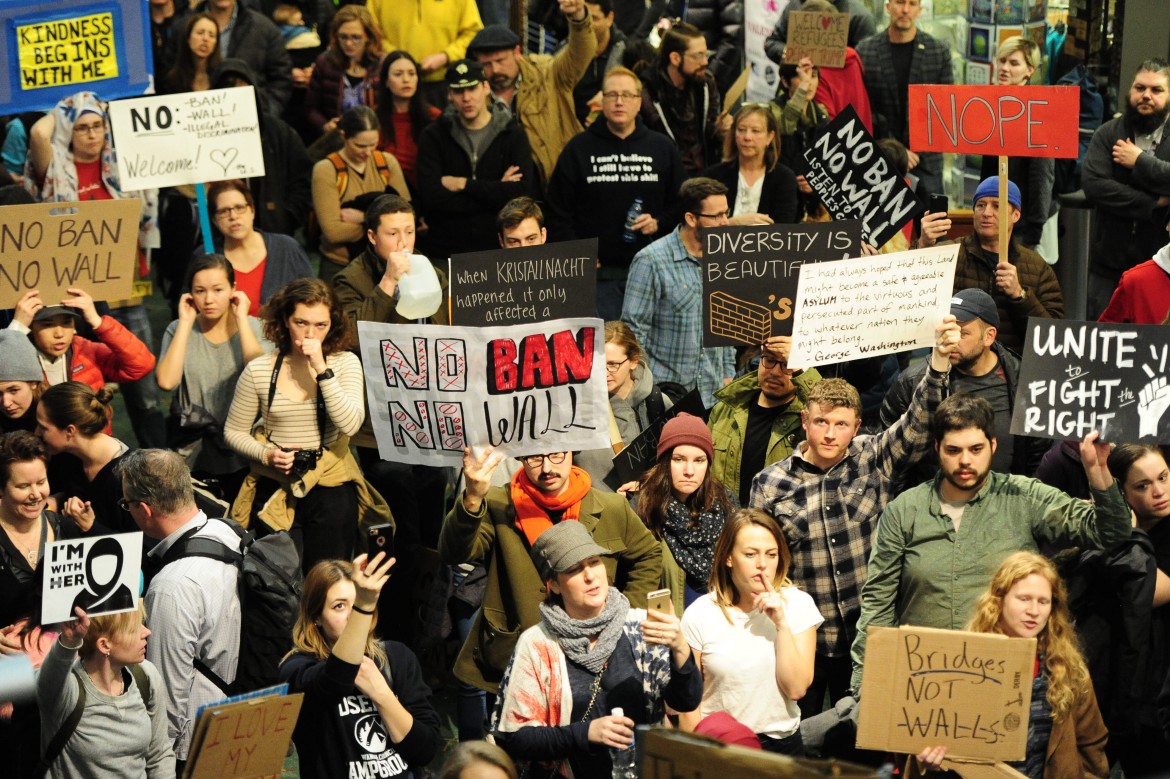Commentary
The most difficult job: listen to those who voted for Trump
There’s an Italian saying: full square, empty urns. The demonstrations in the U.S. are only the beginning.

The massive international demonstration for women on Jan. 21 and the generous response of so many Americans to the ban on predominantly Muslim countries are signs of a democratic and civic awakening that can only give us heart. However, I think it’s a bit excessive to euphorically declare that “America rebels against Trump.”
After all, Trump is doing exactly what voters asked him to do, and I doubt many of them are changing their minds, especially now that they see he delivers on his promises. When Barack Obama said that the actions of the new president endanger the values of the United States, he’s partly right and partly not. The part of America that allowed the rise of Trump certainly hasn’t disappeared. And Trump isn’t a monster that came out of nowhere; he’s one part of an American history that has been both welcoming to immigrants but also chauvinistic and xenophobic. America is a constant tension between these two modes.
The brutality and speed of Trump’s incompetent action is certainly a dramatic shift from precedent, but I do not view it as a rare departure from the American values practiced for centuries. Recall the nativist movements in the mid 1800s, when anti-Catholic citizens rampaged against Irish immigration. Recall the Chinese Exclusion Act of 1882 and the 1920s quota policy that drastically reduced admissions from countries deemed less desirable, including Italy. There was the Japanese immigration ban of 1924, the refusal to admit boatloads of Jewish refugees in 1939, the concentration camps for American citizens of Japanese (and also of Italian) ancestry during World War II and, of course, the persistence of racial segregation in the South until the 1960s.
So it is right and beautiful to feel comforted by the increasing tide of protest. But it is good to remember, for example, that the airports where the demonstrations took place were mostly in metropolitan areas — New York, San Francisco, Boston, Chicago — that voted heavily for Clinton. There was very little news of similar events in the interior parts of Trumpland, though the Women’s March did gain a following in those places — not oceanic, but not negligible. (Trump has already done, with less media attention, more harmful things against women than he has done against migrants.)
Don’t forget that the most intense years of America’s progressive movement between the 1950s and 1970s — the years of civil rights, Black Panthers and Vietnam protests — were years during which America elected Richard Nixon.
There’s an Italian saying, “piazza piene, urne vuote.” Full square, empty urns. We are seeing exciting things in the streets and squares, but as long as we delude ourselves that all of America is participating, we’re blind to what’s happening in people’s homes, villages, farms and suburbs in large parts of the country. And in this way we’ll continue to make the same mistake that the press and political scientists did in taking Hillary Clinton’s victory for granted.
The Women’s March and protests at airports are only a great start. But the work that remains is longer, more difficult, more invisible and more minute. I wonder if our brothers and sisters today demonstrating in the United States will have the patience and humility necessary to listen to the America that we do not like and help her change.
Originally published at https://ilmanifesto.it/il-lavoro-piu-difficile-ascoltare-chi-ha-votato-trump/ on 2017-02-01
